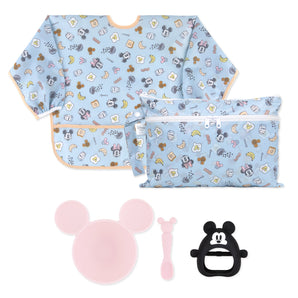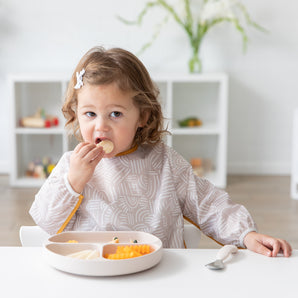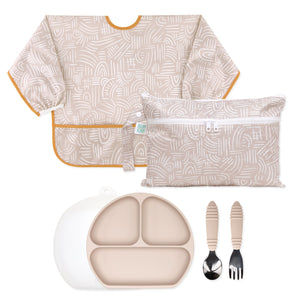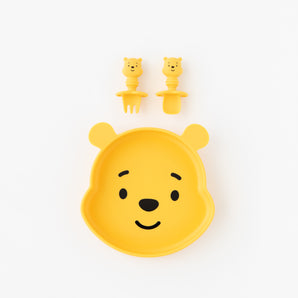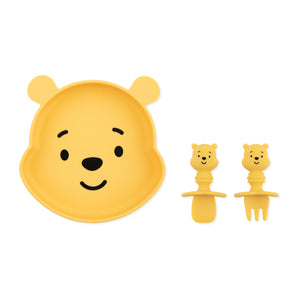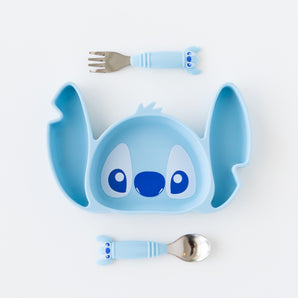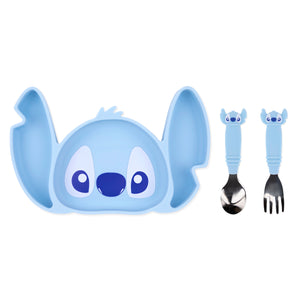By: Pegah Jalali, @pediatricdietitian
Babies and toddlers don't have consistent appetites, and this means that the amount of food they will eat at meals will vary.
This can be very stressful for parents since they may perceive that their baby or toddler is not eating enough, which may lead to food waste. Food waste can be very upsetting for parents, understandably so, because they are putting effort, time, and money into making meals for their children.
One way to manage food waste is to save fruits not consumed to freeze and use in baked goods, smoothies, or homemade popsicles. You can save vegetables to add to eggs or pasta. You can save grains to serve at later meals and snacks as well.
Less Food Doesn't Mean Littles Will Eat Less
Smaller portions don't mean that your child will eat less food since it allows them to ask or signal for more food at meals. This can help with developing their communication. It also teaches them that they can choose how much to eat at meals. Smaller portions are also less intimidating, especially for newer foods or a more cautious eater.
Smaller Portions Can Help Parents Follow The Division of Responsibility of Feeding
Small portions can help parents manage negative emotions related to food waste. Parents also feel a lot better since they can listen to their child's feeding cues. This helps parents follow the division of responsibility of feeding -- parents decide what food is served, where, and when. Your child decides whether to eat and how much!
Reduce Pressure + Help Manage Emotions at Mealtime
Toddlers can feel many "big feelings" at or near mealtimes. They may feel a lot more comfortable with small portions. The small portions signal to them that they will not be pressured or forced to eat.
If you feel stressed or overwhelmed at mealtimes, consider trying small portions to see if it helps you and your children feel more relaxed at meals.
Looking for more ways to reduce stress at mealtime? Learn about neutral language: How to Talk to Babies + Toddlers at Mealtime!


